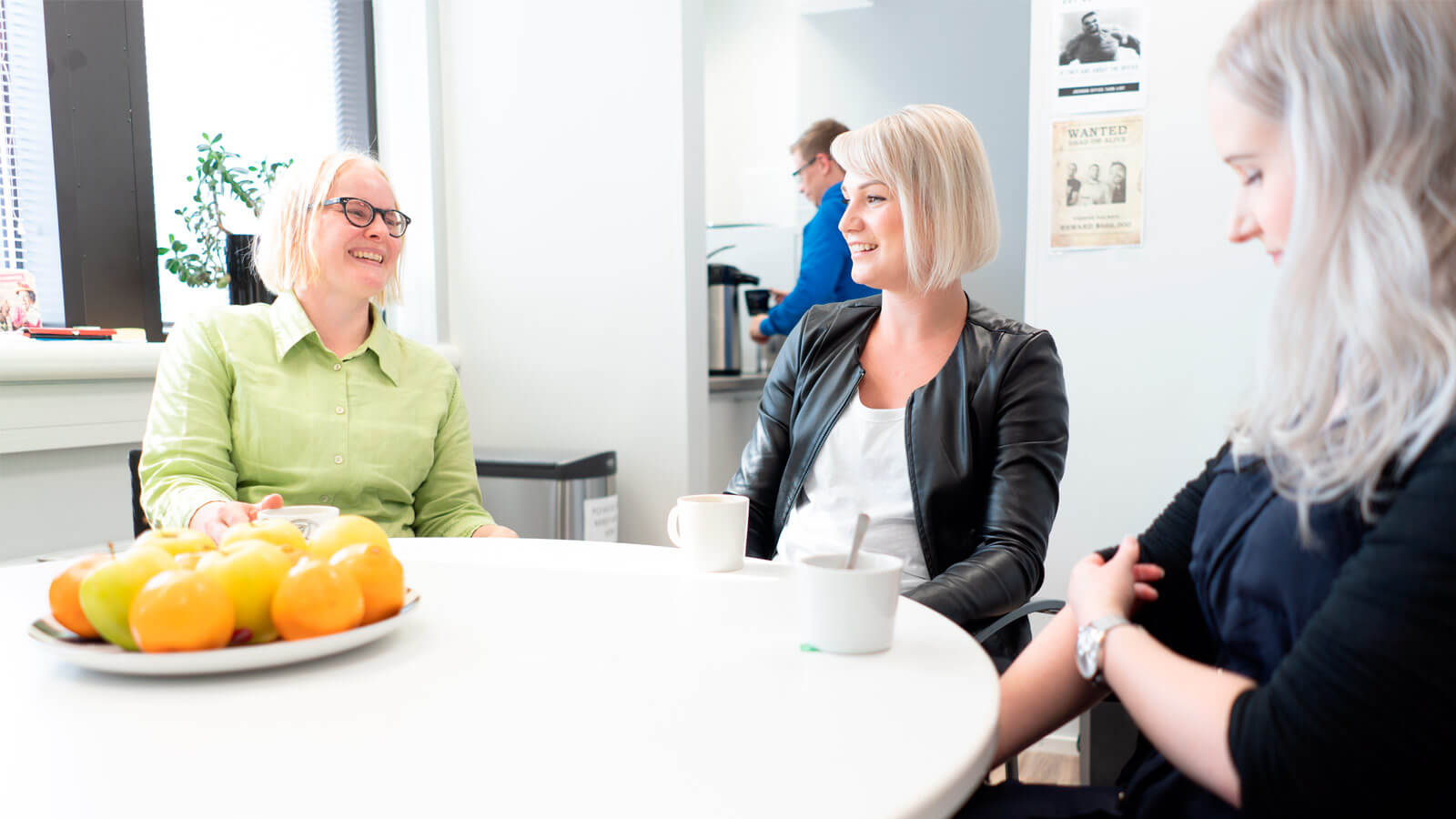On the hunt for social skills
We’ve all come across requirements like ‘good social and people skills’ when browsing through job advertisements. So what are good social skills?

“You enjoy teamwork and have good social skills.” We all have probably come across requirements like ‘good social and people skills’ when browsing through job advertisements. It seems like today, every employer is expecting their applicants to have these skills. An outgoing extrovert can naturally feel comfortable in situations of interaction, whereas a reserved introvert may find the requirement for good social skills a matter of distress. There is often confusion between sociability and social skills which, in fact, are two different things. So what are good social skills and why are they needed in professional life?
The increasing importance of social skills in working life
We spend large parts of our days isolated in front of our computers without real human contact, communicating endlessly with others over instant messaging applications and email. Yet the more technological development advances, the more the importance of soft skills is emphasized in working life. For example, the recent studies of Deming (2017) and Jokinen & Sieppi (2018) found that the importance of social skills has increased over the past decades. Today, a growing number of work duties require good social skills.
The development of automation and robotics has enabled us to assign the foreseeable, manual routine work to machines and robots. For example, robots take over assembling tasks in factories or handle a company’s payroll computation. However, there are still certain tasks requiring social interaction that are difficult, if not impossible, to completely automate. The professions of a psychologist or a therapist, for example, are strongly linked with interaction and human presence, which is why it’s difficult to imagine that a robot could perform the job.
Good social skills are important in the IT sector
The fact that a psychologist or a therapist needs good social skills is a surprise to no-one. But good social skills are also required in the IT sector, where the work often consists of digitizing processes, solving problems and analyzing information using the latest technology. Although the job descriptions of the IT sector have traditionally not been linked with social interaction and working with people, the work itself consists of a lot more than just independently slogging away with data. Robots may be able to perform routine tasks, but they cannot handle challenging negotiations or work well in a project team workshop. Hakola, Hiila and Tukiainen (2019) have written a book about the concept of team intelligence, which means identifying and using the team’s internal skills and shared competence in the development of new ideas and solutions. Social skills are required in the team intelligence’s building process, and an organization needs team intelligence in order to utilize artificial intelligence in the best way possible.
In addition to the quiet, independent work, an IT specialist’s job description includes problem-solving with colleagues, meeting with clients and guiding others in the workplace. Due to technological development, our ways of communicating have undergone a change. Most of our social interaction happens in instant messaging applications and over email, and even though technology makes communicating easier, we still need social skills when using these communication tools. For example, situational awareness, the ability to put ourselves in other people’s position and the ability to express emotions online instead of communicating with each other face to face are required. Our workdays consist of various situations of interaction with different personalities and, therefore, we are constantly using our social skills.
What in fact are good social skills?
Social skills are useful in every work community and in life in general. They help us to function in different and surprising situations of interaction, to connect ourselves to different groups of people and to communicate in an effective manner. Good social skills make it easier to meet new people and to have conversations, to work in teams and to express our own opinions, as well as to take other peoples’ viewpoints into consideration.
When the employer is looking for a person with good social skills, it usually means the ability to:
- fluently communicate with different kinds of people
- adapt in different social situations
- listen
- express own opinions and to take a stand on matters
- consider and value other peoples’ points of view
- fluently function as a group member
- feel empathy
- receive and give feedback
Can an introverted person be socially skilled?
Even though the importance of social skills is nowadays emphasized, it doesn’t necessarily mean that everyone has to be an outgoing extrovert in order to succeed in the professional world. Social skills and sociability are not synonyms. Some of us find socializing more natural than others but being talkative and outgoing does not mean that you have good social skills. Quite the opposite. An outgoing person might find it difficult to listen to others and give them space in group situations. On the other hand, a shy and introverted person can have excellent social skills. For example, their strengths might include listening to and considering other people.
Being an extrovert or an introvert must never be confused with a person’s level of social skills. While we are looking for example for a software developer with good social skills, that does mean we are looking for extroverts or introverts, but rather, Valamis is looking for a person that works well as a team member and knows how to communicate with colleagues, clients and other cooperation partners. All personality types have their own advantages. Studies show that being an introvert can be beneficial for tasks requiring concentration and perseverance, whereas extroverts often thrive in positions requiring presentation and social interaction skills. Different positions require different social skills. Different social situations are emphasized in the work of a salesperson or a consultant compared to a data scientist or a software designer.
No one is born a master
Good social skills are one of the basic requirements of professional life. They are skills just as much as literacy or language skills are. No one is born a master, but skills can always be developed. It is possible to develop social skills by, for example, observing the behavior of oneself and others in different situations of interaction. It’s important to be aware of one’s own strengths related to social skills and to recognize the areas that require further development. Let’s also bear in mind that both introverted and extroverted people have their own place in the professional world because it is the different personalities that together account for a rich work community.




